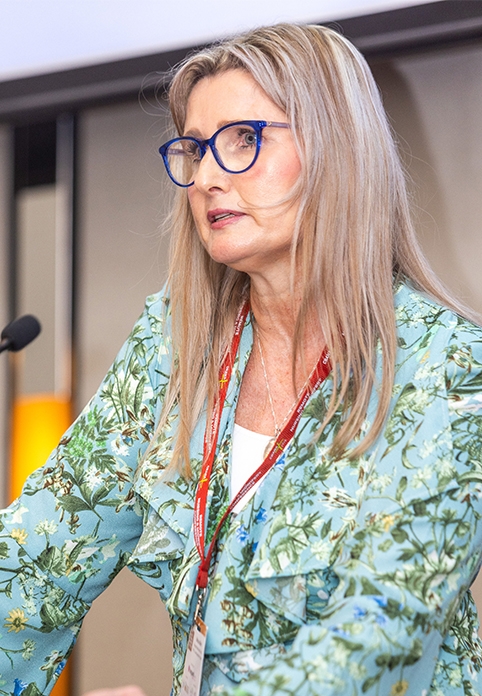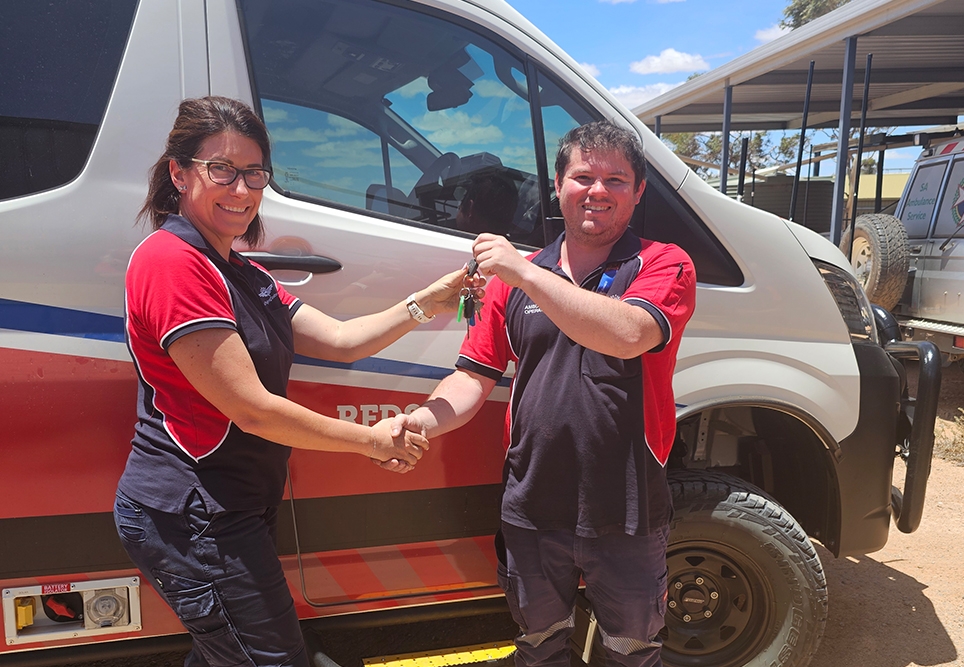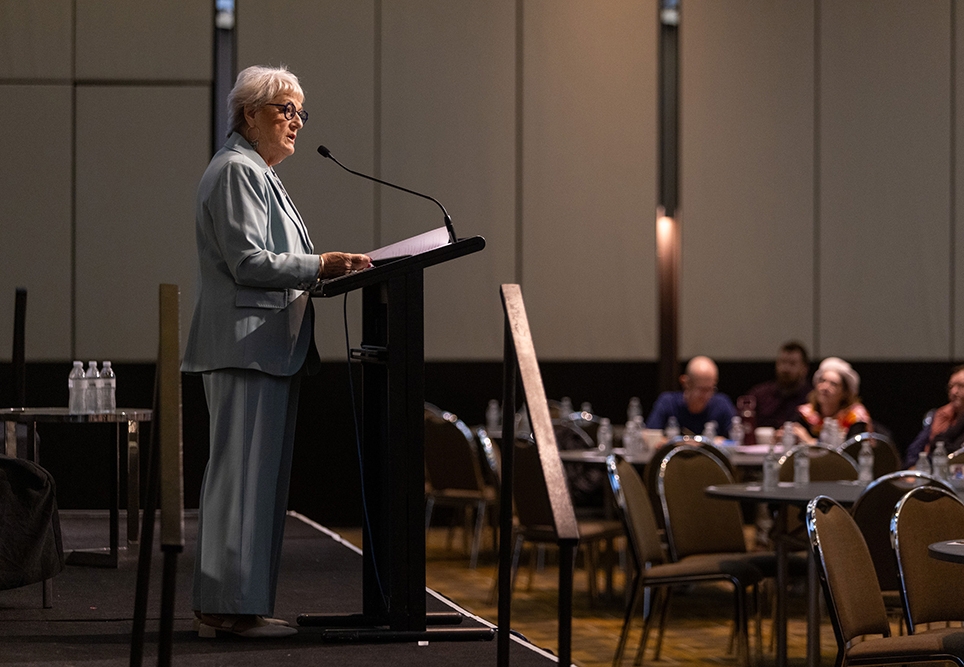
There are four RFDS remote clinics across South Australia – Andamooka, Innamincka, Marla and Marree. This April marks two years since Melissa introduced a new model of enrolled nursing to these clinics, and she has found it to be a “resounding success”.
“After doing a bit of gap analysis across the teams in the clinics and hearing what their pain points were, we decided to implement the EN model,” Melissa explains.
“It was primarily to be a second position to meet the Gayle’s Law requirements, but it was also to support the remote area registered nurses in their delivery of emergency care and out of hospital emergency transport, as well as the delivery of the primary health care and chronic disease management.”
The Rural and Remote Nursing Generalist Framework was an important tool in this process. Melissa has interpreted from it that to create a supportive environment for RANs to practice to their full scope, clinics need to provide a position that can assist them with the more task-oriented nursing roles, to encourage space for bigger-picture thinking.
“If we want to free up the RAN to do complex clinical decision-making and complex care planning, then the EN could be taking on roles and duties that are within their scope of practice to take that burden off,” Melissa says.
“It gives RANs the headspace to be thinking about all the other things they are wanting to do in a remote community that you can’t necessarily give the dedicated time to when you’re busy doing the core clinical care.
“Now with the ENs assisting, there is time to be thinking through those things and planning strategically, rather than always being in reactive mode.”

ENs are not widely sought after for remote area roles across Australia, but Melissa has seen that when they are, they bring many benefits to a clinic, and the wider community.
“We’re in a position now where nurses aren’t suffering as much cognitive fatigue burden as they were before, because when they’re in high-pressure situations of emergency response, there’s an immediate second brains trust who’s a clinician who they can talk through clinical reasoning with.”
“And of course with the shortage of RANs in the market currently, opening it up to ENs has really assisted us with ensuring that our communities and our clinics operate with a continuum of care, our patients are feeling more supported, and our staff are never working alone.”
The remote area clinics are a great place for first-hand learning for ENs too.
“In our clinics, most of our ENs are actually studying to be RNs,” Melissa says.
“In their traditional university clinical placement, they might not get the level of access to thinking through the clinical reasoning in an advanced, complex way. They’re seeing the RNs doing this, and they’re shadowing them and unpacking what they’re learning in their studies in the course of their work.
“From where I stand as an old nurse in the profession in Australia, I think that’s a great thing because the nurses that we will turn out into the future nursing generations of Australia will hopefully have had access to a whole lot more experience.”
To join an RFDS remote area clinic as an EN, at least two-and-a-half years of postgraduate experience is required, and that has to include at least six months of primary health care or correctional services nursing, and/or at least six months in an accident emergency type environment. Experience in multi-purpose health services where there has only been one RN and one EN is also looked upon favourably.


